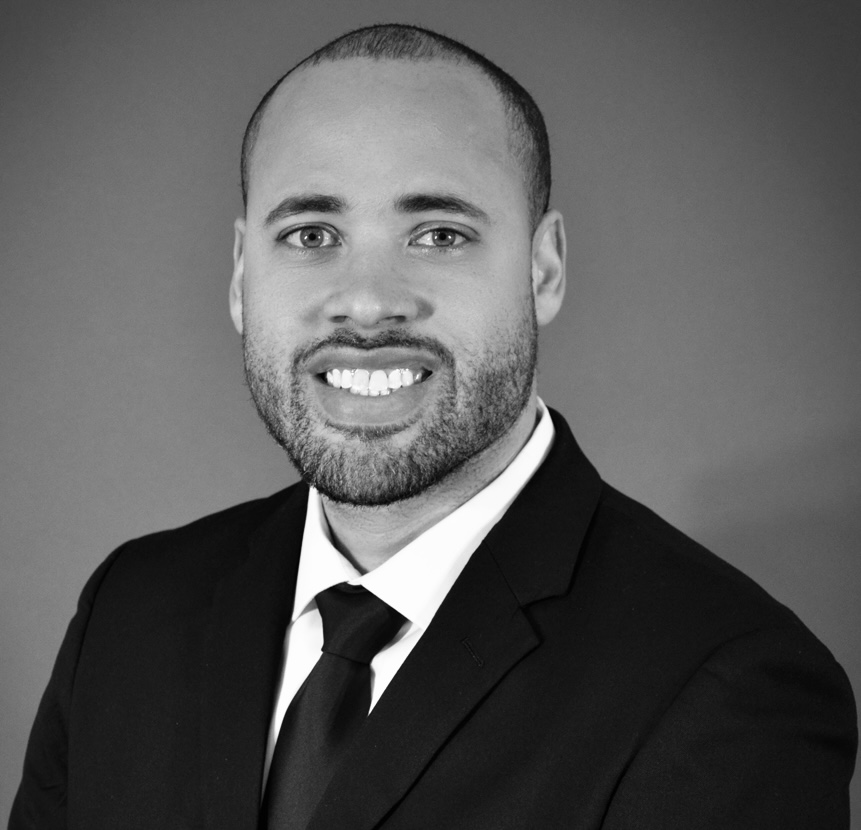The Black pulpit poses the greatest threat to White supremacy and racism in America. From its inception, the Black pulpit was forged in the thick boscage of silent sanctuaries surrounding Southern plantations. Hush harbors were homiletical havens for men and women of faith to proclaim faith in the God of the oppressed. This sacred space has long been a symbol of resistance to oppression and served as the platform for the preached word to a people who found themselves sojourners in a strange land.
And standing tall in pulpits across America through the years has been the Black preacher—serving as the moral compass in a culture that continues to lose its true north. The Black preacher has always stared White supremacy in its face and proclaimed it out of step with the Gospel of Christ.¹ Despite these truths, the Black prophetic preaching tradition has historically teetered on the scales of anonymity and lived in the academic and cultural margins. As Wake Forest University School of Divinity Dean Jonathan Walton notes in Watch This!: The Ethics and Aesthetics of Black Televangelism: “For a race of people who suffered 244 years of chattel slavery, another century of legalized racial apartheid, and the continued vestiges of white supremacy on this nation’s soil, joining the mainstream has proven to be an elusive and illusory goal.”²
And the goal of Black preaching all along wasn’t to join the mainstream. It was to stand outside the fray and declare what thus saith the Lord. The oral tradition of Black preaching served as the only means to confront racial injustices short of armed resistance.
Living in the margins has led to many unfair and unhelpful presuppositions about the Black preaching tradition. Disingenuous caricatures in mainstream culture often mischaracterize Black preaching. Those caricatures ignore Black preaching’s long history of orthodoxy and orthopraxy. Both the academy and culture are responsible for these unhelpful caricatures. It is our responsibility to stand and offer a helpful corrective.
Black Preaching and the Academy
The academy refused until the 1960s to take the Black preaching tradition seriously. Before then, seminary-level content published about Black preaching was rare. Scholar-pastor-publisher Frank Thomas posits that the lack of recognition of the Black preaching tradition in the academy is partly due to the oral tradition from which it derives.³ Black preaching was rarely written down and memorialized for future generations. It drew strength from retained African oral traditions that valued stories passed down through word of mouth. Prophetic messages would descend on congregants’ ears every week, convicting them of their sins and social apathy. But many sermons died with the messenger without a means to record and disseminate them. Even Harvard-trained, Howard University president Mordecai Johnson’s masterful sermons from Rankin Chapel – which were known to hold student audiences spellbound for an hour every week – appear all but impossible to locate in print today.
In addition, scholars often wrongly viewed the Black preaching tradition as one chock full of emotionalism. Ignoring the unique cultural practices found in the tradition, scholars tried to fit Black preaching into an oral tradition that looked down upon any expressive behaviors from the pulpit. For those in the academy, expressive preaching equated to unfaithful preaching. However, the few sermons captured and recorded early in our country’s history told another story. Emerging discovery of lost texts helps to correct this dismissive narrative.
For example, as early as the 18th and 19th Centuries, Black preachers like Lemuel Haynes Daniel Payne preached Christ-centered messages with practical application. Therefore, despite assertions to the contrary, the intonations and annotations in the Black preaching tradition have lent a unique voice to Biblical interpretation. This voice is faithful to the text and its implications.
Faithfulness to the biblical text and biblical justice are unique features of Black preaching. Cleophus J. LaRue, Jr., of Princeton Theological Seminary argues that at the heart of Black preaching lies at least two necessary domains: personal piety and social justice. Black preaching emphasizes prayer, spiritual discipline, morality, and being — in the words of the old church mothers, “right with God.” At the same time, Black preaching also sees God as the “the source of social justice” and Black preachers “are absolutely certain that God’s power is on their side in their quest for social reform.”⁴
In other words, Black preaching embodies the concepts of Biblical orthodoxy and orthopraxy. Why is this important? Because this stands in stark contrast to how outsiders have perceived Black preaching over the years.
The James Cone-Only Myth
Just as there are King James Only Christians, many seminaries across America are James Cone-Only seminaries. As a seminary graduate, I can attest that many White seminaries provided a monolithic approach to Black preaching that presented James Cone, the well-known Black Liberation theologian who appeared on the scene at Union Theological Seminary (white) in the 1960s, as the progenitor and spokesperson for Black preaching.
As much as we yell from the mountaintops that Black preachers are not a monolith, seminary classrooms spent very little time on the homiletical approach of Black preaching. Ignoring antebellum preachers like Harriet Tubman or turn-of-the-century preachers like William Seymour, the Cone-only approach leaves much to be desired when it comes to shaping a more informed narrative around the Black preaching tradition.
Shepherding the Nation
Black preachers have shepherded their congregations and our nation for hundreds of years. Nevertheless, some of our shepherds have gone silent, choosing not to enter the so-called culture wars around them. But what is Black preaching apart from its prophetic witness?
Over the past decade, our country has been deeply embroiled in conversations about social justice. One would think the Black church would have a central role in that discussion. Unfortunately, at least from a cultural perspective, we have farmed out our voice to organizations that do not represent our orthodox, biblical perspective. And we have become silent in a nation that needs our voice. As King notes in his Beyond Vietnam sermon, there comes a time when silence is betrayal.
And who better to present a biblical case for social justice advocacy than the Black preacher? Social justice isn’t an accessory in the Biblical story and biblical preaching. It is a prominent feature of God’s redemptive story. Black preachers have lived out this truth for centuries. We don’t “treat social justice…as something independent from God but as being rooted in and emanating from God.”⁵ In addition, “We have never had the luxury of separating our faith from political action.”⁶ Our theology is both systematic and practical. It is doctrinal and pragmatic. It is dogmatic and heuristic.
It is time to recapture our collective prophetic voice and amplify our public witness in an increasingly divided culture. In the words of Pastor and Simmons College of Kentucky President Kevin Cosby, “Just as Solomon took a great many foreign women for his spouses, so too have our Black leaders espoused many causes foreign to our own plight.”⁷ Apathy and disengagement have led those in power to take us for granted—assuming our support of liberal policies on the one hand or writing off our pain from oppressive policies on the other. It is time for us to stand cast off the chains of apathy and indifference and reclaim our voice and role as a moral compass.
What would that require? It would require a spirit of collaboration, which we have not seen since the Civil Rights Movement in the 1960s. But that spirit of collaboration didn’t just crop up in the 1960s. It is the spirit through which the Black church was born. As the late Colgate-Rochester-Crozer Divinity School President James H. Evans, Jr., noted, “The black church was not born primarily of doctrinal disputes and heresy trials, but rather emerged out of deep-seated cultural tendencies toward solidarity and association among African-American Christians.”⁸ I fear that we have lost the spirit of collaboration and association characteristic of the Black Church’s nascent institutionalization. But we have an opportunity to recapture it and find our voice.
Changing Culture from the Margins
While it is true that the Black preacher has lived in the margins in both the academy and the culture at large, those margins are exactly where change is best effected. The early church was not a majority-culture church. Much like the hush harbor gatherings of the Black church, the early church proclaimed the gospel from the margins. Like the Black church, it was persecuted, misunderstood, and treated as other. Yet, God used it uniquely, changing the course of human history.
As culture trends more toward secularism, the poorly named “Moral Majority” moves, in the popular imagination, toward becoming an “Immoral Minority.” Many White Evangelicals find themselves disoriented, having never proclaimed the Gospel in a hostile culture. In addition, they may have sold their morality for political capital and no longer have the perceived authority to advocate for moral order. Yet, unmistakably, the future of the church in America is ministry in the margins.
The sooner we come to terms with that reality, the better off we will be. Because ministry in the margins is where the Gospel is most effective. The Black Church has always known this to be true. The Black preacher has always proclaimed this to be true. And the Black Church has retained its moral authority inherent in both its Gospel proclamation and historical witness.
Call to Renewal
Black preachers, we are in a prime position to lead the way in Gospel proclamation and application in the years to come. The question is whether we are willing to tear down our silos to curate a unified voice. We owe it to Reverend George Lee, murdered for registering voters in Humphreys County, Mississippi, in 1955. We owe it to Corporal Roman Duckworth, Jr., an off-duty military police officer ordered off a bus and murdered by police in Taylorsville, Mississippi, in 1962. We owe it to Reverend Clementa C. Pinckney and nine souls in Charleston, South Carolina, murdered during a Bible study in Charleston, South Carolina, in 2015. This cloud of witnesses birth from silent, secret sanctuaries now requires us to become witnesses forged in the cauldron of vocal, public advocacy.
Black oral tradition is much closer to the faith tradition found in Scripture than any of our contemporaries’. The voice of Black preachers is needed more today than at any other time in history.
1 Frank A. Thomas, Introduction to the Practice of African American Preaching (Nashville: Abingdon Press, 2016), 25.
2 Jonathan L. Walton, Watch This! The Ethics and Aesthetics of Black Televangelism, Religion, Race, and Ethnicity, (New York: New York University Press, 2009), 170.
3 Thomas, Introduction to the Practice of African American Preaching, 16–17.
4 Cleophus James LaRue, The Heart of Black Preaching, 1st ed (Louisville, Ky: Westminster John Knox, 2000), 21–23.
5 Cleophus James LaRue, The Heart of Black Preaching, 1st ed (Louisville, Ky: Westminster John Knox, 2000), 21–23.
6 Esau McCaulley, Reading While Black: African American Biblical Interpretation as an Exercise in Hope, (Downer’s Grove, Illinois: IVP Academic, 2020), 49.
7 Kevin W. Cosby, Getting to the Promised Land: Black America and the Unfinished Work of the Civil Rights, Movement, First edition (Louisville, Kentucky: Westminster John Knox Press, 2021), 18.
8 James H. Evans, We Have Been Believers: An African-American Systematic Theology (Minneapolis: Fortress Press, 1992), 120.


